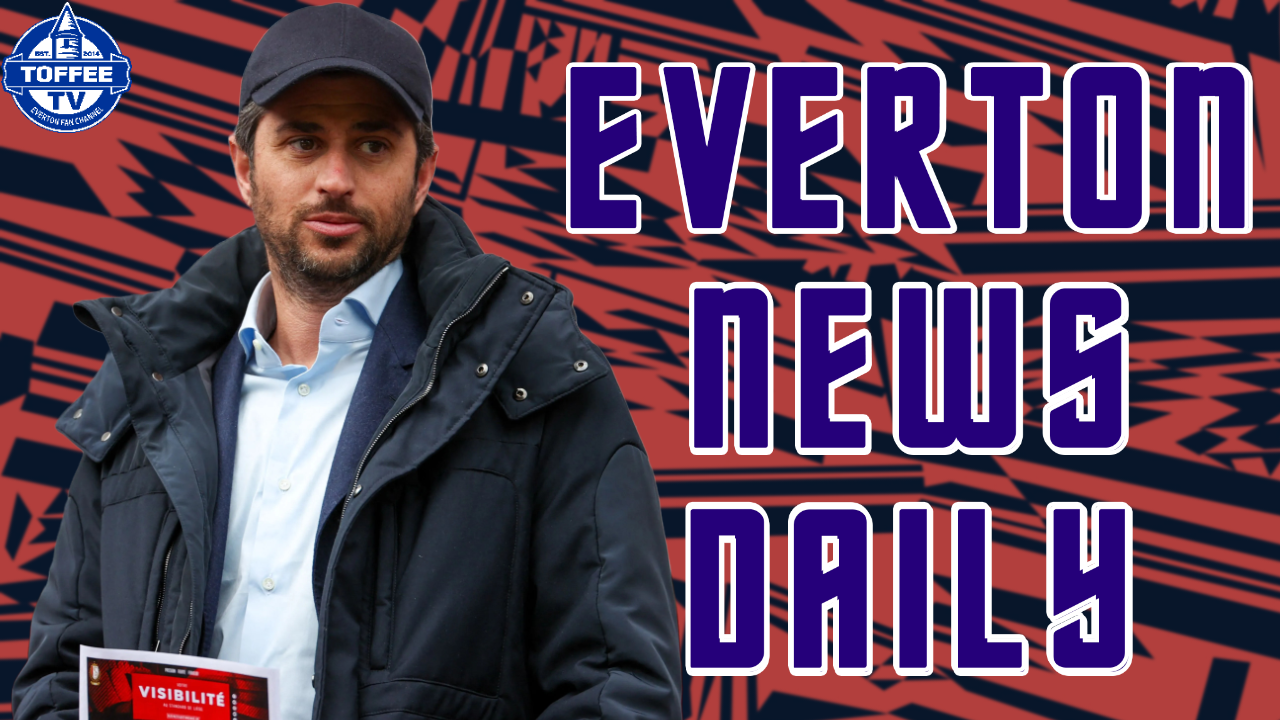When David Moyes, a 38-year-old from Glasgow, and latterly of Preston North End, succeeded
Walter Smith as Everton manager in 2002 little could he have imagined that a phrase he spoke
‘off the cuff’ in his first press conference would outlive his stay at the club and still be in active
use more than 20 years later.
JOIN SUBSTACK HERE : https://mtag.substack.com
He had noted on his journey to Goodison Park, home of the Blues for more than 130 years, that
“All the kids have Everton shirts”, that the city reminded him of his hometown and that “The
people in the streets support Everton” – The People’s Club.
Fast forward more than 20 years and Moyes is long gone but the phrase persists, even though
many Evertonians would question its present-day use considering the tribulations of the past
few seasons causing fans to question: ‘Whose club is it anyway?’
Majority shareholder Farhad Moshiri, in attendance at his first Meeting of Shareholders in
2017, said “We don’t want to be a museum”.
Fine words, and in that time, he has often said the right things, but a billion pounds or so later
the on-field outcomes are as bad as they have been for a long time, and many would say the
management of the business is worse.
Change is coming. That’s for sure. But are the mandatory changes needed within the whole
fabric of the club going to come about through evolution or revolution?
Fans campaigned throughout 2023 for the Board to be sacked. That did not happen, but three
Board members did resign in June, and four new members joined the Board, including Moshiri
himself. Fans had hoped changing the members — and this is now certainly a new Board —
would see an immediate improvement. That was always unlikely, and sustainable change does
take time. But a change in perception can be achieved much quicker – almost immediately.
Yet the perception remains very much the same… if not worse.
While Everton are very active behind the scenes on both the financial and sporting sides, the
club appears to be plodding along like it always has; culturally it seems to lack energy, it appears to be fearful of change, a default human trait, and from the outside looking in it’s the
same old, same old.
Moshiri himself, and maybe others in the club, share the optimism that the expected
investment from MSP Sports Capital will bring with it new, vibrant Board members to the table,
but with the process dragging on, the need to be decisive in the competitive world of Premier
League football should not be overlooked. Time waits for no one.
Back in 2017, during that Meeting of Shareholders, Moshiri also said: “We have a window to
establish ourselves and we will do everything we can”.
Well, whatever was done wasn’t good enough. The club has deteriorated year-on-year under
his ownership, as big decisions have been made without enough foresight, and the mess left
behind has yet to completely unravel.
In business terms, evolution would hope to dampen down the shock of change. Humans don’t
like change, they’re generally more comfortable with an established status quo. Yet time has a
habit of forcing change anyway, so Moshiri and his colleagues need to recognise that the
potential for evolution has long gone.
Revolution has almost become essential.
Everton cannot afford to take years to establish a better environment; disruptive change is
needed now, the culture needs to be woken from its slumber, good people need to be re-
energised and visible signs of progress need to be obvious to all within weeks and months —
not years.
Tough decisions need to be made. Indeed, many could — and should — have been made
already. The leadership needs to be dynamic, enthusiastic, and direct. Appropriate behaviours
need to be rewarded and people stuck in the old ways need to be moved on. Everton don’t have the luxury of time to change the people via evolution. It really does need to
change the people with a revolution.
Now is not the time to be gentle. Harsh realities need to be confronted and addressed as a
matter of urgency with the period of pain for the staff who stay, and those who must leave,
needing to be as short as possible.
Currently, it seems that some within the club have what they think are reasons for
underperformance, when others may think they are not reasons but rather excuses.
The role of the leaders is to remove the excuses for failure; the culture must embrace self-
awareness. “How can I do my job better?”
People must use the answers to pressure themselves and those above them to remove the
obstacles, create an environment where challenging the status quo and stagnation is not just
good, but actively and consistently encouraged.
Everton need to empower their people to make decisions. Those who cannot do that will either
jump or will be pushed, and the others will make the world a better place. Making decisions
and being accountable for outcomes is mandatory. For a while at least, it will be uncomfortable
for even the most committed — years of hierarchical behaviours cannot be swept away
overnight — so the leadership needs to stand up, be counted and lead from the front towards a
brave new world where nothing but the best is good enough.
The right leadership is critical, as is the need for the people both inside and outside the club to
believe. They need to believe that sustainable, positive change is coming; they need to be
confident that the club will not revert to its historical type of the last 20 years.
It is why the departure of Chairman Bill Kenwright is such a big event. Because many people
sadly do not believe positive change is possible while he is there — he is seen as a physical
representation of everything that has gone wrong.
Regardless of the good or the bad that Kenwright has done, his departure from the Board is a
matter of when, not if.
As such it needs to be sooner rather than later and with his exit so too must fall the last
individual excuse for any future failure for those he leaves behind.
John Blain
Categories
- 1878FM Podcast (7)
- Everton ClubCall (7)
- Everton Daily Live Extra (15)
- Everton Matches (2)
- Everton News Daily (191)
- Everton Players (2)
- Inside The Game Podcast (1)
- John Blain (1)
- Match Preview (4)
- Match Preview (34)
- Match Preview (5)
- Match Reaction (2)
- Match Reaction (136)
- Match Report (8)
- News (24)
- Patric Ridge Blog (1)
- Press Conference (16)
- The Final Word (19)
- VIDEO (461)



